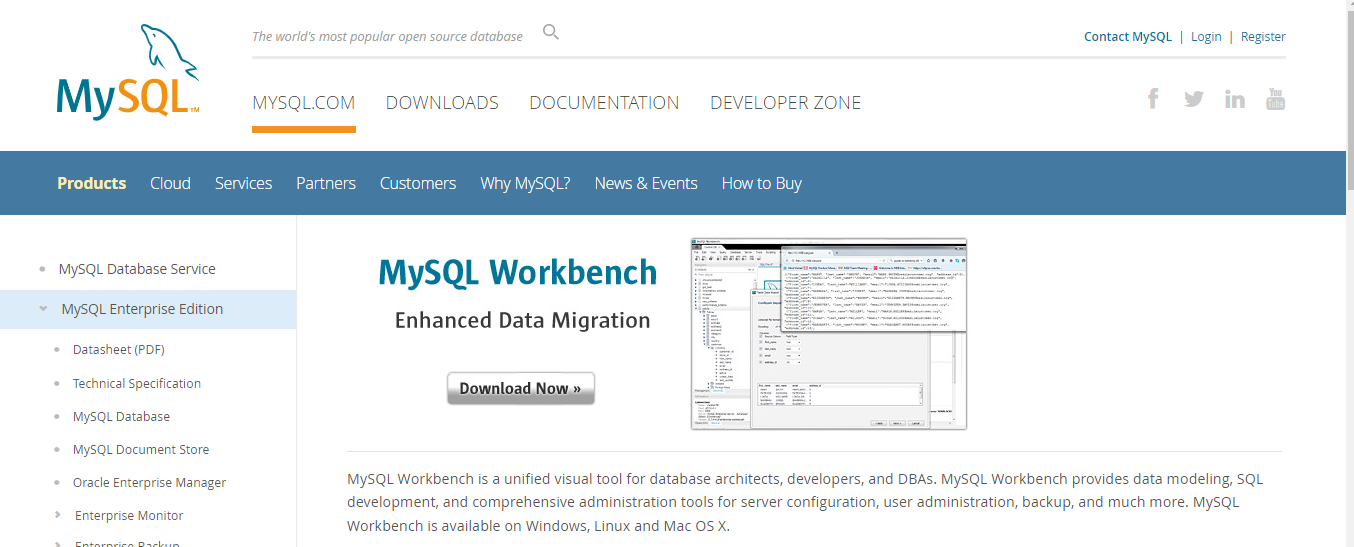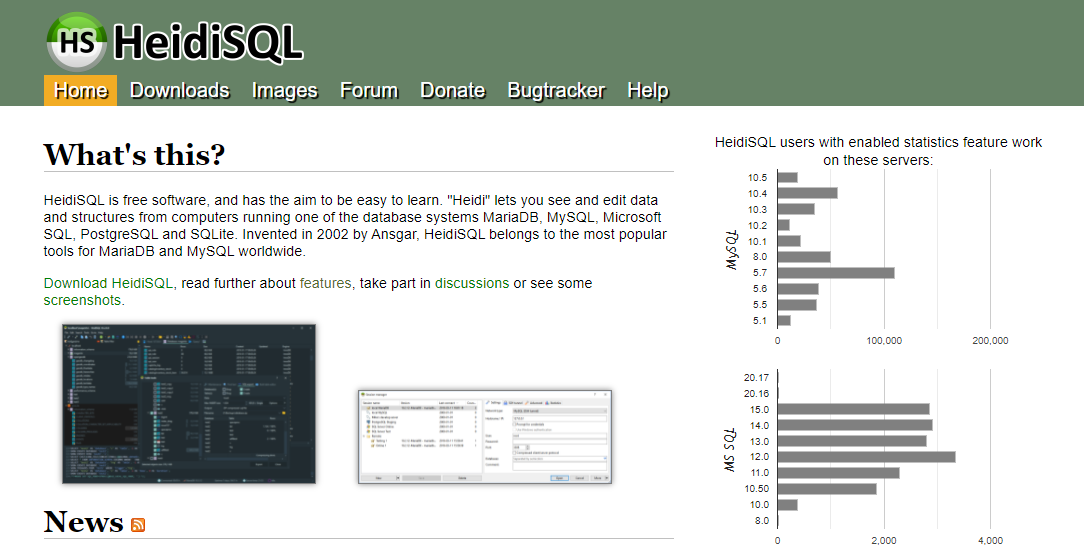
- Database workbench alternative how to#
- Database workbench alternative install#
- Database workbench alternative password#
- Database workbench alternative free#
Noteįields are the columns of a table which hold the information that you want to store. It’s OK to leave this blank if you haven’t created a database yet or don’t want one to load by default. If you don’t store it here, then Workbench will prompt for it each time.ĭefault Schema - This is the default database to connect to.
Database workbench alternative password#
Password - This is the database user’s password.

If you just installed MySQL, this will be root. Username - This is the database username. MySQL Server Port - Leave this as 3306 unless you changed the MySQL port number. MySQL Hostname - Leave this as 127.0.0.1, which indicates the database is running on your Linode. SSH Key File - If you use an SSH key pair instead of a password, you can point Workbench to your key file through this setting. If you don’t provide it, then Workbench will prompt for it each time. SSH Password - You can store your password for the SSH connection here if you want to. If you use a non-standard port (other than 22), add it to the end following a colon (example: 203.0.113.0:2222). SSH Hostname - The IP address of your Linode. NoteĬonnection Name - This is the name of the connection for your reference only.Ĭonnection Method - Set this to Standard TCP/IP over SSH. Alternatively, some distributions have MySQL Workbench in their repositories. rpm packages available on the Workbenchĭownload page.
Database workbench alternative install#
MySQL index of our Guides and Tutorials pages.ĭownload and install MySQL workbench from the You can find instructions for this and the recommended prerequisites for your particular Linux distribution in the
Database workbench alternative how to#
It might be worth giving it a try.This guide will show you how to get started using Alternatively, other clients exist, such as "Table Plus" and allow you to connect, on Mac, to a variety of database servers, including SQL Server. Decision making-wise, how much do your want your local sql/mysql client to influence/weigh in your architecture/technology decisions, though? This can be a slippery slope. I have been running it at various companies (under AWS/RDS and AWS/Aurora) and have no reason to switch over to anything else. That said, could Azure MySQL ( ) be an option for you a this point? MySQL offers great performance. You'd only be looking at MySQL Query Workbench, if you were running and connecting to a MySQL Database. Therefore, it certainly makes sense you stick with some of the official Microsoft Tooling to connect to it, query and administer it.

Looking at your stack ( ), it seems you are using Azure SQL Databases. MySQL WorkBench has a broader approval, being mentioned in 17 company stacks & 33 developers stacks compared to DBeaver, which is listed in 12 company stacks and 24 developer stacks. Here's a link to DBeaver's open source repository on GitHub.Ĩvillages, Addo, and ADEXT are some of the popular companies that use MySQL WorkBench, whereas DBeaver is used by Zencom, Datatree, and StadLine. It includes everything a data modeler needs for creating complex ER models, forward and reverse engineering, and also delivers key features for performing difficult change management and documentation tasks that normally require much time and effort.ĭBeaver and MySQL WorkBench belong to "Database Tools" category of the tech stack.ĭBeaver is an open source tool with 9.88K GitHub stars and 835 GitHub forks. It enables a DBA, developer, or data architect to visually design, model, generate, and manage databases.

On the other hand, MySQL WorkBench is detailed as " A unified visual tool for database architects, developers, and DBAs". Supports all popular databases: MySQL, PostgreSQL, SQLite, Oracle, DB2, SQL Server, Sybase, Teradata, MongoDB, Cassandra, Redis, etc.
Database workbench alternative free#
It is a free multi-platform database tool for developers, SQL programmers, database administrators and analysts. DBeaver vs MySQL WorkBench: What are the differences?ĭevelopers describe DBeaver as " A Universal Database Tool".


 0 kommentar(er)
0 kommentar(er)
